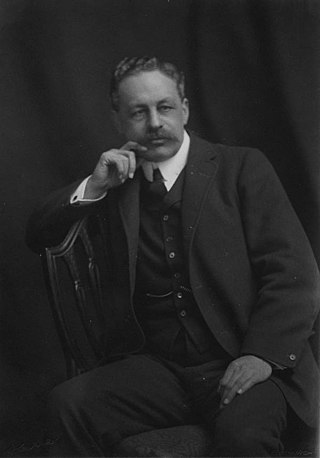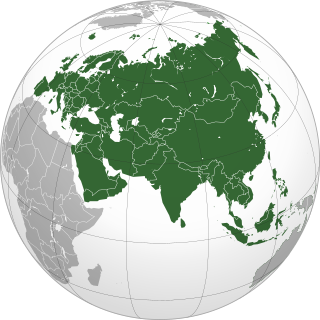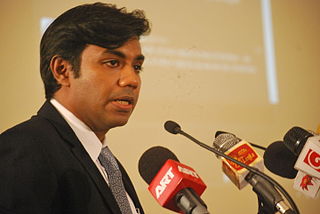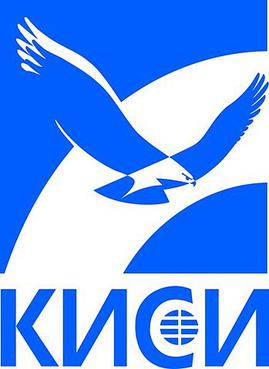Geopolitics is the study of the effects of Earth's geography on politics and international relations. While geopolitics usually refers to countries and relations between them, it may also focus on two other kinds of states: de facto independent states with limited international recognition and relations between sub-national geopolitical entities, such as the federated states that make up a federation, confederation, or a quasi-federal system.

The Indo-Pacific is a vast biogeographic region of Earth.

Sir Halford John Mackinder was an English geographer, academic and politician, who is regarded as one of the founding fathers of both geopolitics and geostrategy. He was the first Principal of University Extension College, Reading from 1892 to 1903, and Director of the London School of Economics from 1903 to 1908. While continuing his academic career part-time, he was also the Member of Parliament for Glasgow Camlachie from 1910 to 1922. From 1923, he was Professor of Geography at the London School of Economics.
Economic interdependence is the mutual dependence of the participants in an economic system who trade in order to obtain the products they cannot produce efficiently for themselves. Such trading relationships require that the behavior of a participant affects its trading partners and it would be costly to rupture their relationship. The subject was addressed by A. A. Cournot who wrote: "...but in reality the economic system is a whole in which all of the parts are connected and react on one another. An increase in the income of the producers of commodity A will affect the demands for commodities B, C, etc. and the incomes of their producers, and by its reaction will affect the demand for commodity A." Economic Interdependence is evidently a consequence of the division of labour.
Geostrategy, a subfield of geopolitics, is a type of foreign policy guided principally by geographical factors as they inform, constrain, or affect political and military planning. As with all strategies, geostrategy is concerned with matching means to ends Strategy is as intertwined with geography as geography is with nationhood, or as Colin S. Gray and Geoffrey Sloan state it, "[geography is] the mother of strategy."
The basic concept behind critical geopolitics is that intellectuals of statecraft construct ideas about places; these ideas have influence and reinforce their political behaviors and policy choices, and these ideas affect how people process their own notions of places and politics.

John Sitilides is a Washington, D.C. geopolitical strategist and diplomacy consultant to the U.S. Department of State.

Regional organizations (ROs) are, in a sense, international organizations (IOs), as they incorporate international membership and encompass geopolitical entities that operationally transcend a single nation state. However, their membership is characterized by boundaries and demarcations characteristic to a defined and unique geography, such as continents, or geopolitics, such as economic blocs. They have been established to foster cooperation and political and economic integration or dialogue among states or entities within a restrictive geographical or geopolitical boundary. They both reflect common patterns of development and history that have been fostered since the end of World War II as well as the fragmentation inherent in globalization, which is why their institutional characteristics vary from loose cooperation to formal regional integration. Most ROs tend to work alongside well-established multilateral organizations such as the United Nations. While in many instances a regional organization is simply referred to as an international organization, in many others it makes sense to use the term regional organization to stress the more limited scope of a particular membership.

Eurasia is the largest continental area on Earth, comprising all of Europe and Asia. According to some geographers, physiographically, Eurasia is a single continent. The concepts of Europe and Asia as distinct continents date back to antiquity, but their borders are arbitrary and have historically been subject to change. Eurasia is connected to Africa at the Suez Canal, and the two are sometimes combined to describe the largest contiguous landmass on Earth, Afro-Eurasia.

Asanga Abeyagoonasekera is a Sri Lankan academic, geopolitics and foreign policy analyst. He is a political columnist and author. He is a visiting professor for geopolitics and global leadership at Northern Kentucky University and a visiting lecturer in International Political Economy for The University of London in Sri Lanka Royal Institute of Colombo and teaches at the International Security at University of Colombo. Abeyagoonasekera has more than a decade of experience in government administration, serving as the head of several government institutions to positions at the board level. His commentaries on International Relations and Geopolitics are published by Observer Research Foundation New Delhi, London School of Economics and South Asia Journal. Abeyagoonasekera writes the monthly column Dateline Colombo for IPCS think tank in New Delhi.

The Kazakhstan Institute for Strategic Studies under the president of Kazakhstan (KazISS) (Kazakh: Қазақстан Республикасы Президентінің жанындағы Қазақстан стратегиялық зерттеулер институты, Qazaqstan Respýblıkasy Prezıdentiniń janyndaǵy Qazaqstan strategııalyq zertteýler ınstıtýty; Russian: Казахстанский институт стратегических исследований при Президенте Республики Казахстан) is a Kazakhstan state institution aimed at providing research and analytical support to the president of Kazakhstan and his government. The KazISS provides research related to international and domestic affairs as well as the social and economic development of Kazakhstan. The KazISS aims to provide predictive research and analysis for the country's leadership.
Kent E. Calder was the Interim Dean of the Johns Hopkins School of Advanced International Studies (SAIS). He serves as the Director of the Edwin O. Reischauer Center for East Asian Studies, and is also the Edwin O. Reischauer Professor of East Asian Studies at SAIS. He previously served as the Vice Dean for Faculty Affairs and International Research Cooperation at SAIS.
Etel L. Solingen is a Distinguished Professor and the Thomas T. and Elizabeth C. Tierney Chair in Peace and Conflict Studies at the University of California Irvine. She was President of the International Studies Association (ISA) in 2012-2013 and received the 2018 William and Katherine Estes Award from the National Academy of Sciences; the 2022 Richard Holbrooke Prize from the American Academy in Berlin; the 2020 Susan Strange Professorship at the London School of Economics; and the 2019 Distinguished Scholar award in International Security from the International Studies Association.

Elkhan Nuriyev is a political scientist and a recognized expert on Russia, Eastern Europe, Caucasus, Central Asia and the Greater Middle East. He has published widely as a scholar, and he conducts regular briefings at the request of the international organizations and think tanks. He is frequently called on by government agencies, media, academic circles and private-sector institutions for comment and consulting on Russian foreign policy, Caucasus, wider Black Sea-Caspian Basin, Central Asia and regional security issues in post-Soviet Eurasia. In 2014, Nuriyev was a DAAD Senior Fellow at the German Council on Foreign Relations in Berlin. In 2015, he was a Humboldt Senior Fellow at the German Institute for International and Security Affairs in Berlin. In 2017, Elkhan Nuriyev served as Corridors Fellow for Dialogue and Cooperation at the Leibniz Institute for East and Southeast European Studies, Regensburg, Germany. He is a Global Energy Associate at the Brussels Energy Club and is also a Senior Expert on Russia, Eastern Europe and Central Asia at L&M Political Risk and Strategy Advisory in Vienna. In 2019, Nuriyev worked as a Humboldt Senior Fellow at Zentrum für Osteuropa- und internationale Studien (ZOiS) / Centre for East European and International Studies. In 2020, he was an Eastern Europe-Global Area (EEGA) Fellow at the Research Centre Global Dynamics, Leipzig University. In 2021, Elkhan Nuriyev worked as a Think Visegrad Visiting Fellow at the Institute for Foreign Affairs and Trade (IFAT) in Budapest.

The China–Pakistan Axis: Asia's New Geopolitics is a 2015 book by the British author Andrew Small that explores the cultural and political relationship between China and Pakistan, with China being described as Pakistan's great economic hope and trusted military partner. The book describes the central role played by the China-Pakistan axis in Asian geopolitics, influencing India, post-American Afghanistan, the threat of nuclear terrorism and the continent's new network of mines, ports and pipelines.
Dashdorj Bayarkhuu is a Mongolian research professor, columnist and writer and former ambassador of Mongolia to Egypt. Prior to his nomination to the ambassadorial position, Bayarkhuu worked in media, defense, diplomatic and educational sectors. After his tenure as ambassador in Cairo, Bayarkhuu returned to academic field as a Visiting Professor of International Politics and Contracted Researcher. He joined the Ministry of Foreign Affairs of Mongolia as Deputy Director, Policy Planning & Co-ordination Department in 2015–2016.
Ronald Dannreuther is an international relations scholar and academic administrator, who has been Deputy Vice-Chancellor of the University of Westminster and formerly Dean of its Social Sciences and Humanities Faculty (2013–15) and Head of Politics and International Relations there (2009–13).
Geostrategy in Taiwan refers to the foreign relations of Taiwan in the context of the geography of Taiwan. Taiwan is an island country in East Asia, while it is also located at the center of the first island chain and commands the busy traffic of Taiwan Strait and Bashi Channel.
Energy diplomacy is a form of diplomacy, and a subfield of international relations. It is closely related to its principal, foreign policy, and to overall national security, specifically energy security. Energy diplomacy began in the first half of the twentieth century and emerged as a term during the second oil crisis as a means of describing OPEC's actions. It has since mainly focused on the securitization of energy supplies, primarily fossil fuels, but also nuclear energy and increasingly sustainable energy, on a country or bloc basis.

Abishur Prakash is a Canadian businessman, author, and geopolitical expert. He is the CEO of The Geopolitical Business, an advisory firm based in Toronto, Canada. Prior to this, he worked as a futurist at Center for Innovating the Future, a foresight agency.










